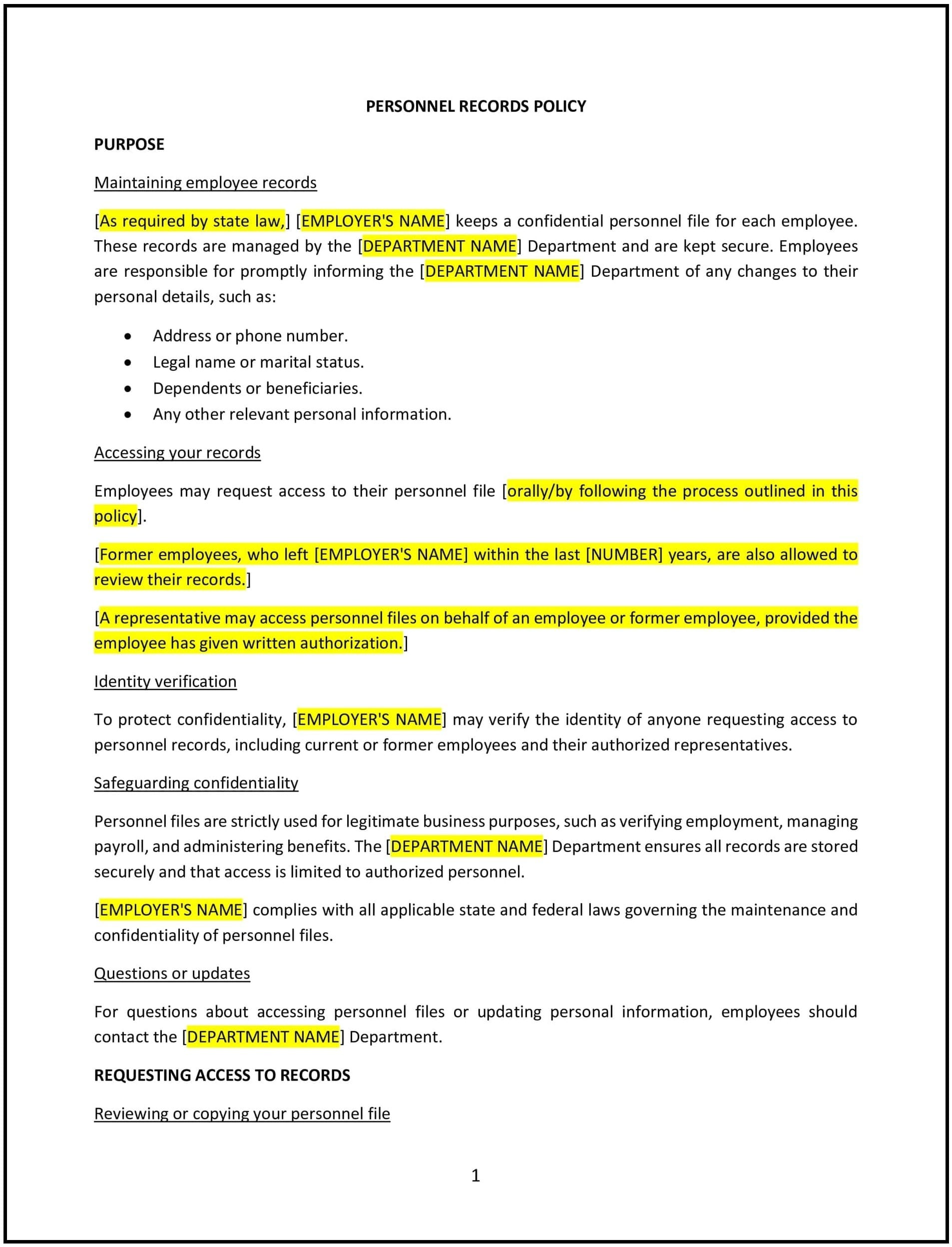Personnel records policy (New Jersey): Free template
Got contracts to review? While you're here for policies, let Cobrief make contract review effortless—start your free review now.

Customize this template for free
Personnel records policy (New Jersey)
A personnel records policy helps New Jersey businesses manage and protect employee information, including personal details, employment history, performance evaluations, and any other records maintained by the company. This policy outlines how personnel records should be created, accessed, stored, and disposed of in compliance with legal requirements.
By adopting this policy, businesses in New Jersey can ensure that employee records are handled securely and consistently while maintaining compliance with relevant privacy laws and employment regulations.
How to use this personnel records policy (New Jersey)
- Define what constitutes personnel records: Specify what information is included in personnel records, such as personal details, employment history, performance evaluations, disciplinary records, and compensation data.
- Establish record-keeping procedures: Outline how personnel records will be created, updated, and maintained, ensuring that all information is accurate and up-to-date.
- Set access controls: Limit access to personnel records to authorized personnel only, such as HR staff and managers, and establish guidelines for who can access and review the records.
- Ensure confidentiality: Outline procedures to protect the confidentiality of employee records, including secure storage and handling of sensitive information.
- Provide employee access rights: Explain employees' rights to access their own personnel records, request corrections, and how they can review or obtain copies of the records.
- Specify retention and disposal policies: Define how long personnel records will be retained and the procedures for safely disposing of records that are no longer needed.
- Review and update: Regularly assess the policy to ensure it aligns with changes in New Jersey law, best practices, and business needs.
Benefits of using this personnel records policy (New Jersey)
This policy provides several benefits for New Jersey businesses:
- Protects employee privacy: Safeguards sensitive employee information and ensures compliance with privacy laws.
- Reduces legal risks: Helps businesses comply with state and federal regulations regarding employee records.
- Increases operational efficiency: Streamlines record-keeping processes and ensures consistent handling of employee data.
- Promotes transparency: Clearly communicates employee rights to access and review their records, fostering trust in the organization.
- Enhances data security: Implements secure systems for storing, accessing, and disposing of personnel records to prevent unauthorized access.
Tips for using this personnel records policy (New Jersey)
- Communicate the policy clearly: Ensure employees understand how their personal information will be managed, stored, and protected.
- Restrict access: Limit access to personnel records to HR staff and relevant managers, and require them to sign confidentiality agreements.
- Implement secure storage: Use secure systems, such as encrypted digital storage or locked physical cabinets, to protect sensitive employee information.
- Regularly audit records: Conduct periodic audits to ensure that records are accurate, complete, and being maintained in accordance with company policy.
- Provide training: Train HR staff and managers on proper procedures for handling personnel records and maintaining confidentiality.
- Review the policy regularly: Update the policy to reflect changes in New Jersey regulations, privacy laws, or internal business practices.